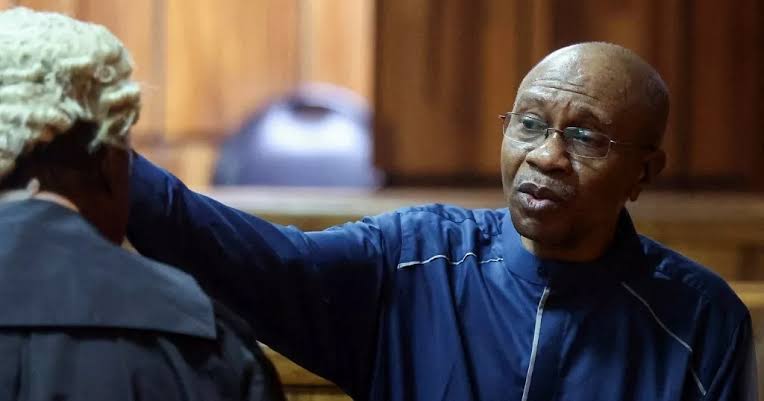
Former Central Bank of Nigeria Governor, Godwin Emefiele, has approached the Court of Appeal in Abuja, seeking to overturn a judgment that awarded the federal government ownership of a vast Abuja estate comprising 753 housing units.
Economic and Financial Crimes Commission (EFCC) had earlier secured a court order to seize the property located in the Lokogoma district.
Although the estate was initially linked to an unnamed former government official, Emefiele, through his lawyer A.M. Kotoye, insists he has a stake in the estate and should have been part of the proceedings. He contends that the trial court denied him a fair hearing and is now asking the appellate court to reverse the decision.
“I was not aware of the forfeiture,” Emefiele said, claiming the EFCC published the interim forfeiture notice in an obscure section of a newspaper, making it difficult to discover. He further explained that he was simultaneously battling three separate criminal trials in Abuja and Lagos at the time, which hampered his ability to respond.
Emefiele also accused the EFCC of intentionally hiding the forfeiture case from him, despite their ongoing legal dealings in other cases. The trial court, however, rejected his objections, holding that due process was followed and that the newspaper publication sufficed as notice. The judge ruled that the notice “could not reasonably be described as hidden.”
Unhappy with the verdict, Emefiele filed an appeal on April 30, 2025, asking the Court of Appeal to:
* Overturn the trial court’s April 28, 2025, judgment
* Nullify the interim and final forfeiture orders dated November 1 and December 2, 2024, respectively
* Approve his application filed on January 28, 2025
He argued that the lower court misinterpreted his application and dismissed it without properly assessing key facts. According to him, the forfeiture orders were based on “hearsay, suspicion, and no credible evidence.”
Despite the trial court’s conclusion that Emefiele failed to prove ownership, he maintains that he holds both legal and equitable interests in the disputed estate.
“The entire ruling is a miscarriage of justice,” Emefiele declared.
He added, “The failure of the trial judge to properly evaluate the affidavit and documents before him is perverse and has caused a miscarriage of justice.
“The orders were made in breach of the 1999 Constitution and are therefore null and void.”








